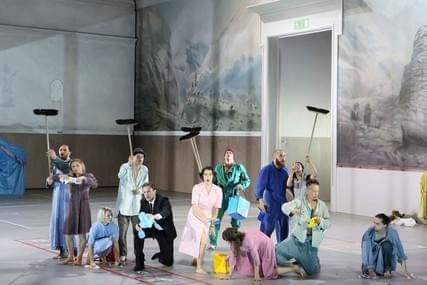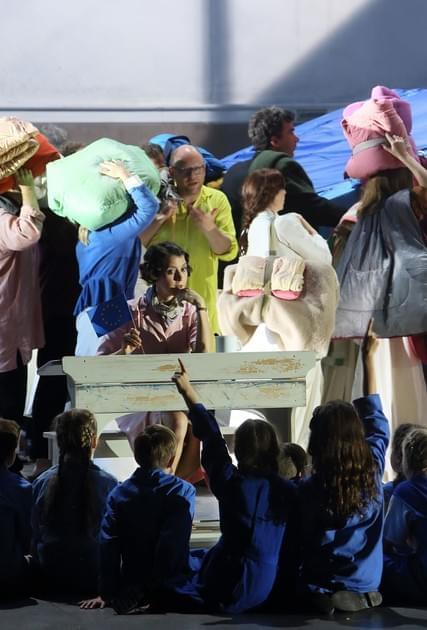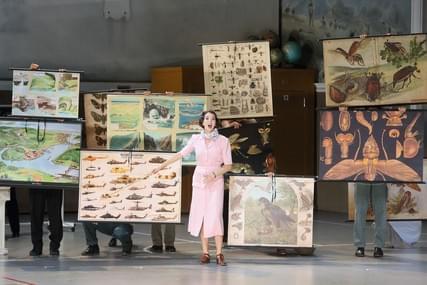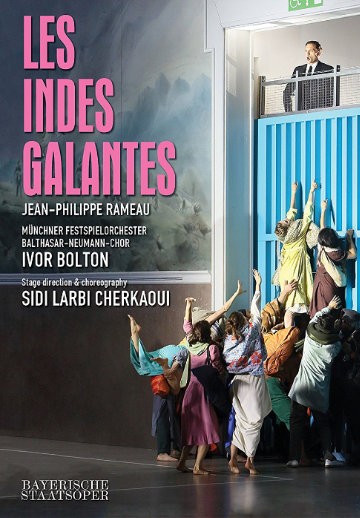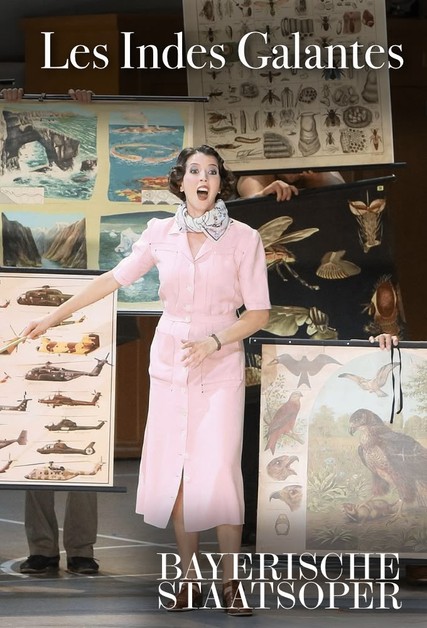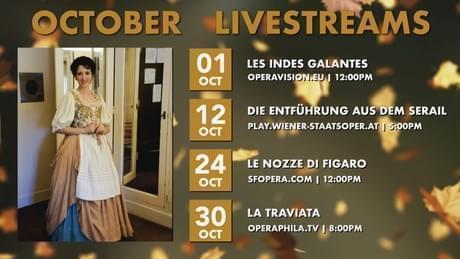Cast
| Hébé | Lisette Oropesa | |
| Bellone | Goran Jurić | |
| L'Amour | Ana Quintans | |
| Osman | Tareq Nazmi | |
| Emilie | Joélle Harvey | |
| Valère | Cyril Auvity | |
| Huascar | François Lis | |
| Phani | Anna Prohaska | |
| Don Carlos | Mathias Vidal | |
| Tacmas | Cyril Auvity | |
| Ali | Tareq Nazmi | |
| Zaire | Ana Quintans | |
| Fatime | Anna Prohaska | |
| Damon | Mathias Vidal | |
| Don Alvaro | François Lis | |
| Zima | Lisette Oropesa | |
| Adario | John Moore |
Ivor Bolton
ChoreographySidi Larbi Cherkaoui
ChorusmasterDetlef Bratschke
About
LIVE Internet Broadcast
July 24th, Staatsopertv.de
Very much in keeping with the spirit of his age, Jean-Philippe Rameau measures the European culture of being lucky or unlucky in love against the image of the noble savage and takes the audience on a journey to four exotic realms. Given that, in the mythical land of Arcadia, people are walking away from Love and choosing to follow the god of war, Amor encourages Love to seek new followers on other continents. Regardless of whether the portrayals of distant lands are accurate representations of reality as conveyed by geographers, or simply a propagation of colonial clichés, Europeans are reflected just as much in the sultan who declines to take advantage of the highly desirable prisoner; in the self-destructively jealous Inka priest; in the love games of Persian princes; and in the prairie Indians who love faithfully and peacefully, as Rameau's furiously portrayed storms and volcanic eruptions stand for their emotional turbulence.
Recollecting the origins of French music theatre within a culture of dance, Rameau plays with a genre which was enjoying a high degree of popularity among his contemporaries, but which today classifies as terra incognita, ripe for rediscovery: the Opéra-ballet. Using a balanced mix of music, drama and dance, and with multiple long-distance location changes, the focus alternates between four couples and their handling of fidelity, trust and jealousy - variations on the increasingly pertinent question: How do we love right?
Münchner Festspielorchester
Bayerisches Staatsorchester
Chorus - Bayerischen Staatsoper
Tänzer der Compagnie Eastman, Antwerpen
Balthasar-Neumann-Chor, Freiburg


